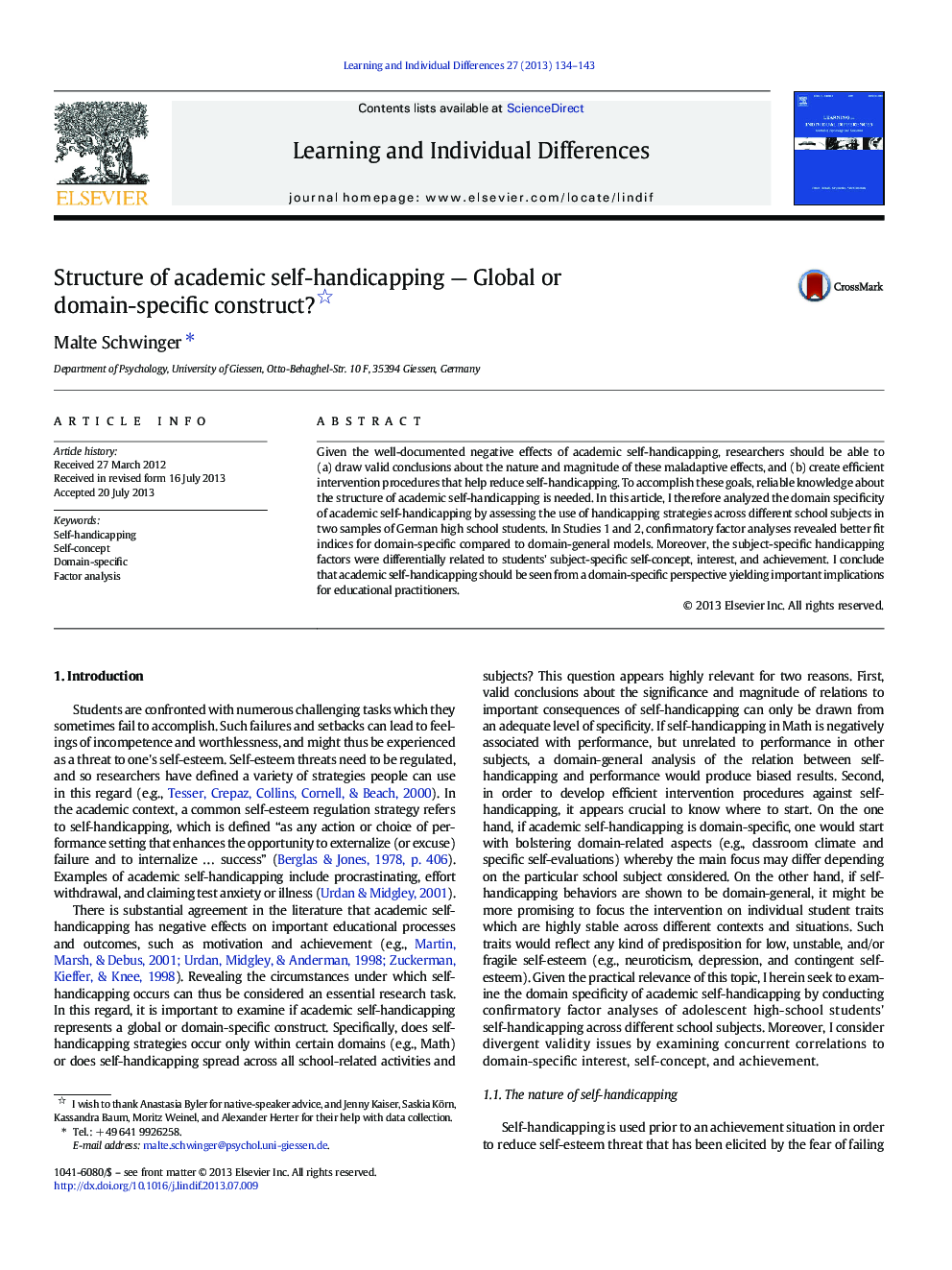| Article ID | Journal | Published Year | Pages | File Type |
|---|---|---|---|---|
| 364740 | Learning and Individual Differences | 2013 | 10 Pages |
•This article examines the domain-specificity of academic self-handicapping.•Better fit was obtained for domain-specific compared to domain-general models.•Subject-specific handicapping factors were differentially related to covariates.•Academic self-handicapping should be seen from a domain-specific perspective.
Given the well-documented negative effects of academic self-handicapping, researchers should be able to (a) draw valid conclusions about the nature and magnitude of these maladaptive effects, and (b) create efficient intervention procedures that help reduce self-handicapping. To accomplish these goals, reliable knowledge about the structure of academic self-handicapping is needed. In this article, I therefore analyzed the domain specificity of academic self-handicapping by assessing the use of handicapping strategies across different school subjects in two samples of German high school students. In Studies 1 and 2, confirmatory factor analyses revealed better fit indices for domain-specific compared to domain-general models. Moreover, the subject-specific handicapping factors were differentially related to students' subject-specific self-concept, interest, and achievement. I conclude that academic self-handicapping should be seen from a domain-specific perspective yielding important implications for educational practitioners.
